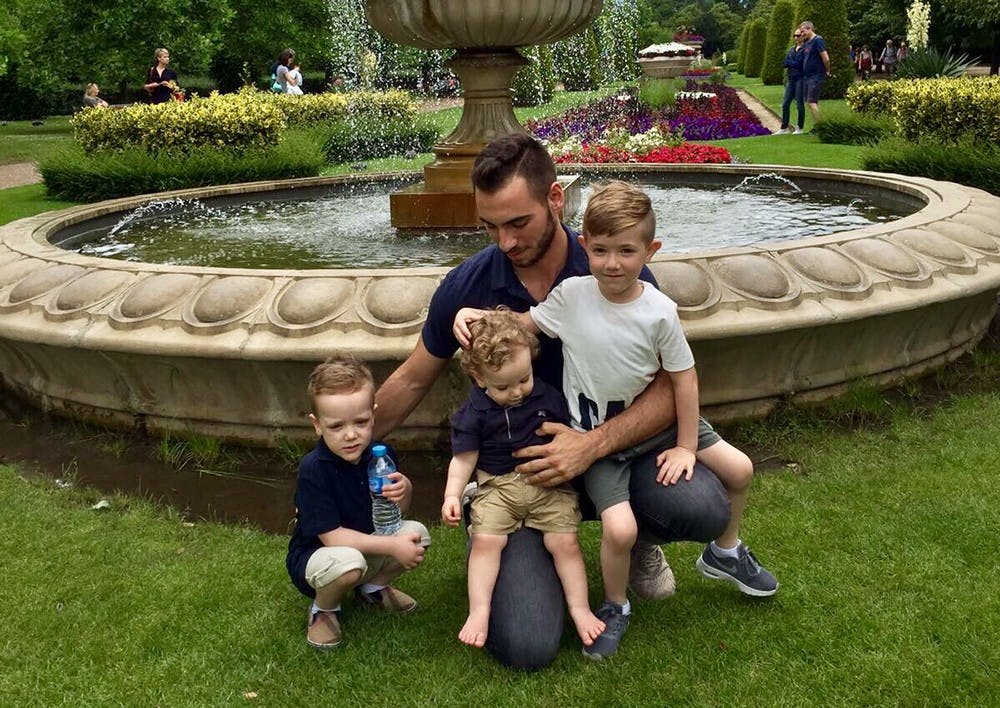Junior Zaid Karabatak was supposed to arrive in London the night of June 3. At 10:00 p.m. that night, a man drove a van through pedestrians on London Bridge. The attackers continued down to Borough Market in the heart of central London and launched a knife attack, according to a London Metropolitan Police statement. Eight people were killed.
Karabatak wasn’t in the city because his visa had been delayed.
The news of the attack was nerve-wracking, he said. He was worried for his friends who had travelled to England ahead of him.
“Never once did I think of not coming,” he said. “It was just convincing everyone around me.”
His sentiment is generally shared by the other Hoosiers in London, said Ashley Stevens, assistant director of overseas studies for SPEA. Her programs have 83 students abroad in London.
During the summer semester, England and London have been the location of several attention-garnering incidents. The London Bridge attack followed just a week after the bombing at a concert in Manchester, England, about 160 miles north of London.
In mid June, a fire ravished all 24 stories of the Grenfell Tower apartments. 21 victims have been formally identified as of July 5, according to a London Metropolitan Police statement. Upward of 80 people are presumed dead.
Five days later, a man used a van to hit Muslims outside a prayer service after breaking the day’s fast as part of Ramadan. He killed one and injured at least eight.
Before Karabatak left for England, his family was worried about the sentiment towards him in London, he said. He is an Arab and a Muslim.
According to a 2016 Pew Research survey, 28% of those surveyed in the U.K. held an unfavorable view of Muslims.
You’re not afraid, but you’re conscious of yourself and your surroundings after growing up a Muslim in a post-9/11 world, he said.
The three London Bridge attackers were of Middle Eastern descent, as well as the suicide bomber in Manchester. The Islamic State group claimed responsibility for both terrorist attacks.
Karabatak’s trip to London coincided with the Muslim holy month of Ramadan and the holiday Eid al-Fitr. He celebrated with his cousin who lives in London.
During the celebration, Karabatak and his family discussed the attacks.
“How do we handle that?” Karabatak asked, provoking a conversation on how Muslims should react to the attacks.
There were two distilled conclusions at the end of the intimate family discussion.
My opinion is that we must condemn those actions and be leaders and role models in the Muslim community afterwards, Karabatak said.
The other side said it isn’t the responsibility of individual Muslims to condemn the acts of all other Muslims. Just being Muslim doesn’t make you a representative for all the other ones.
Karabatak said he understood that perspective, too.
Karabatak finally joined his classmates in London on June 8 to start his internship through a Kelley School of Business program. He’s been living and working in the city for three weeks, and he said he’s never felt uncomfortable.
“You never feel like an outsider,” he said.
He noticed shops hang “halal” signs in the window, signifying the meat sold within is prepared to Muslim standards.
According to the 2011 census, 36.7% of London’s 8.17 million person population was born outside of England and the U.K.
Karabatak noticed all of these cultures infused in London, which he said made him feel comfortable in London being Arab.
He feels more uncomfortable in his hometown in southern Ohio, he said. There, it’s rural, right-leaning and lacking in diversity.
“It’s 2017,” he said. “If danger’s going to strike, it’s going to strike anywhere.”
Stevens echoed a similar sentiment to concerned parents, who she talks to often as part of her position.
We have just as much danger in Bloomington, she tells them.
She also outlines for them the safety measurements the program has in place. Before the London program began, Stevens and her team created an emergency management plan, deemed necessary in the light of the recent events.
SPEA students have a meeting point and backup location in London, with strict expectations for communication and check-in during emergency scenarios.
Overall, she just urges students to be aware and vigilant, she said.
IU did not require her to make the emergency plan. She said IU is generally used to these things happening, and there is just as great a concern towards potential threats in the U.S. as in the U.K.
“It’s just part of the course at this point,” Stevens said. “You just have to be prepared and know about what’s going on.”
Two students still dropped out of the program due to parents’ concerns, Stevens said.
Two of the SPEA programs offered are national security and managing hazards – especially pertinent after the rash of attacks that have happened here and abroad.
Day one of the risk management class was an honest discussion about students fears. Some of the students admitted their fears and talked about their families’ concern, Stevens said.
The professor had them define risks and analyze different parts of each, breaking down the situation into smaller pieces.
By the end of the lecture, Stevens felt a lot better about the situation in London, she said. The students seemed to feel better as well.
It made her realize the perception is worse than the reality.






